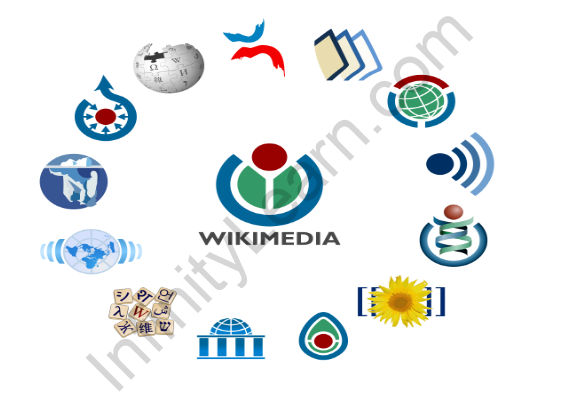Table of Contents

Wikipedia is a free Internet-based encyclopaedia that uses an open-source management model. It was founded in 2001. The Wikimedia Foundation is in charge of it. Wikipedia makes use of wiki software, which makes it easier to write and edit articles. Despite the fact that some well-publicised issues have drawn attention to Wikipedia’s editorial process, they have had little impact on public use of the resource, which is one of the most popular on the Internet.
The beginning and the development
A tough review procedure. Sanger supported augmenting Nupedia with an open-source encyclopaedia based on wiki software by January 2001, when less than two dozen articles had been completed. Wikipedia was started as a feature of Nupedia.com on January 15, 2001, but it was relaunched as an independent Web site a few days later, following concerns from the advisory board. Wikipedia had 20,000 articles in 18 languages within its first year, including French, German, and SpanishPolish, Dutch, Hebrew, Chinese, and Esperanto are some of the languages spoken in the world. Nupedia was decommissioned in 2003, and the site’s content was migrated to Wikipedia.
Wikipedia’s English-language edition had more than one million entries by 2006, and it had topped 3.5 million by the time of its tenth anniversary in 2011. While the encyclopaedia continued to grow at a rate of millions of words each month, the number of new entries published each year declined with time, from 665,000 in 2007 to 374,000 in 2010. As a result of this delay, the Wikimedia Foundation decided to concentrate its expansion efforts on Wikipedia’s non-English editions, which reached over 250 by 2011.
With some versions already boasting hundreds of thousands of articles—the French and German versions both boasted more than one million—special attention was paid to languages from the developing world, such as Swahili and Tamil, in an attempt to reach populations who would otherwise be unserved by the Internet. The Chinese government’s frequent bans on access to some or all of Wikipedia’s content within China, however, hampered the site’s potential to reach a truly global audience.
CONS OF USING WIKIPEDIA
• Instructors may penalise you for using it
• Content can be edited by anyone at any time for any reason
• Most of the information has not been vetted by professionals and cannot be regarded credible or dependable
PROS
- Well-organised and easy-to-use pages can help you gain a rough idea of what a topic is about.
- A diverse set of data, the majority of which is becoming increasingly trustworthy. • Wikipedia has occasionally reported prominent people’s deaths incorrectly (including Senator Edward Kennedy and Miley Cyrus). There have been reports of libel and hoaxes as well.
Importance
- Wikipedia is a completely free resource that gives anyone with Internet access to information on millions of topics.
- Wikipedia is updated on a regular basis. Print encyclopaedias, on the other hand, are updated once a year on average.
- Wikipedia is a great place to start your research because it provides background information on your topic as well as possible keywords that you can use to conduct further research.
- Sources used in the articles are cited, allowing further investigation into any topic.
Becoming Project of learning
Most teachers regard Wikipedia as the devil’s domain, a haven for rumours and disinformation. However, research has shown that Wikipedia is as accurate as a traditional encyclopaedia. Volunteer editors swiftly fix inaccuracies, and content is entered according to stringent guidelines, including the need that “everything be cited.” Most importantly, Wikipedia is the primary source of knowledge for many, if not all, individuals. Because editing is open to the public, it is likely the most valuable information source on the Internet. It provides students with a fantastic opportunity to write articles for class assignments.
Students can not only become content creators but also have a genuine impact on their world by contributing to Wikipedia pages because they know their work will inform others. It’s one of the most effective ways to give course content a practical application and, as a result, increase student enthusiasm and engagement.
It is not simple to write a Wikipedia article. It necessitates understanding the article format, and the volunteer Wikipedia editors are likely to advise students to change it.
Students should be informed that, despite their best efforts, they will almost certainly have to rewrite their work multiple times. Revising work, on the other hand, is essential for learning and progress. We modify our articles several times before publication as academics, but we don’t expect students to do the same. This experience is provided by Wikipedia assignments, which eliminate the need for the instructor to perform several reviews.
FAQ’s
Is Wikipedia a good place to learn?
Learning how to navigate a Wikipedia article effectively can teach students about peer review, sourcing, footnotes, and internet research. It also teaches them how to think critically.
What is it about Wikipedia that schools despise?
Academics dismiss Wikipedia for a variety of reasons: pages can be produced by anyone, not just world experts; editing and regulation are imperfect; and relying on Wikipedia can prevent students from engaging in serious research.
What is Wikipedia's purpose?
goal of Wikipedia is to serve readers by serving as a free and widely accessible encyclopaedia; a comprehensive written compendium of material on all disciplines of knowledge and academic writing. Vandalism is also a prevalent occurrence.








